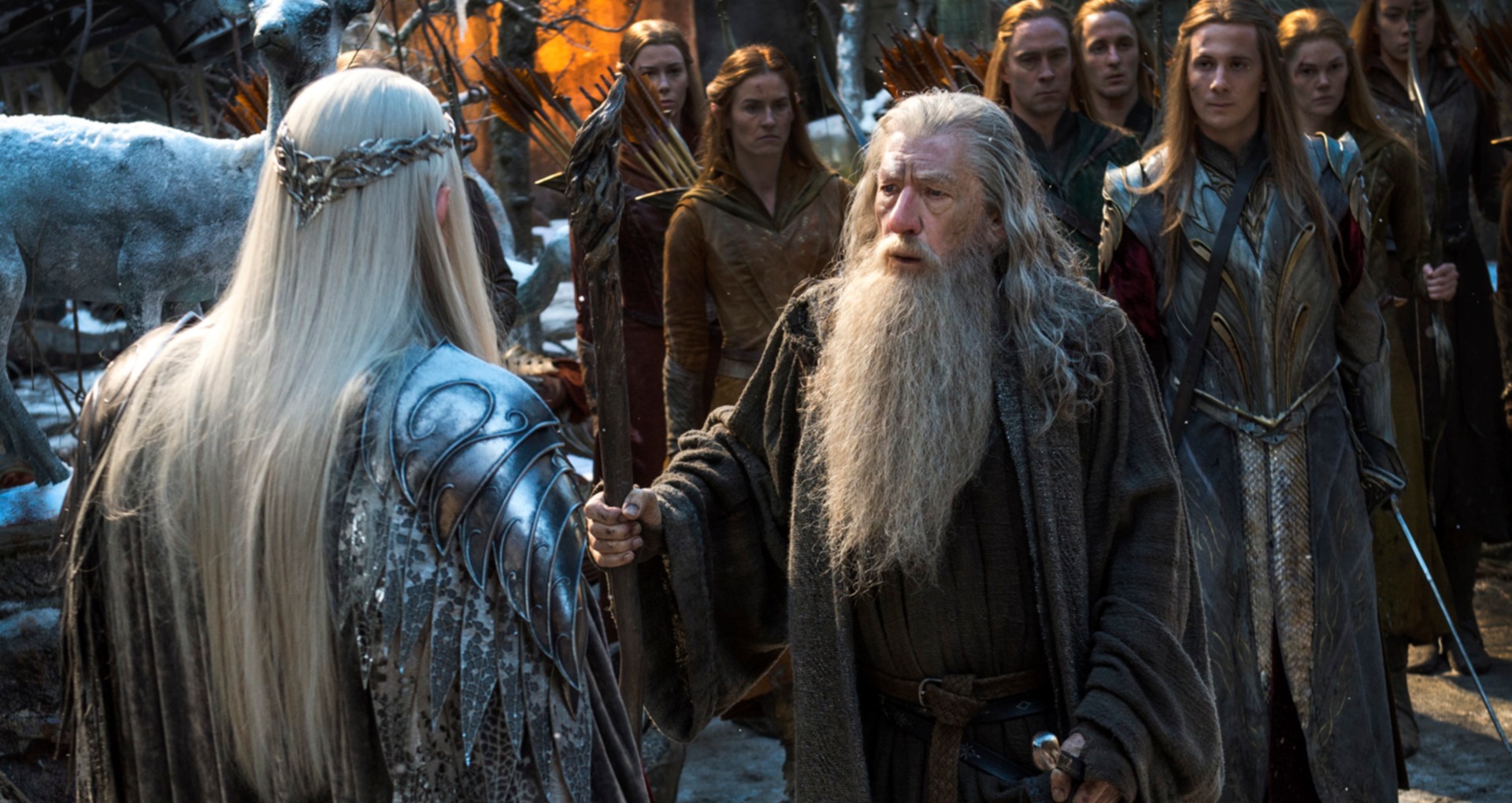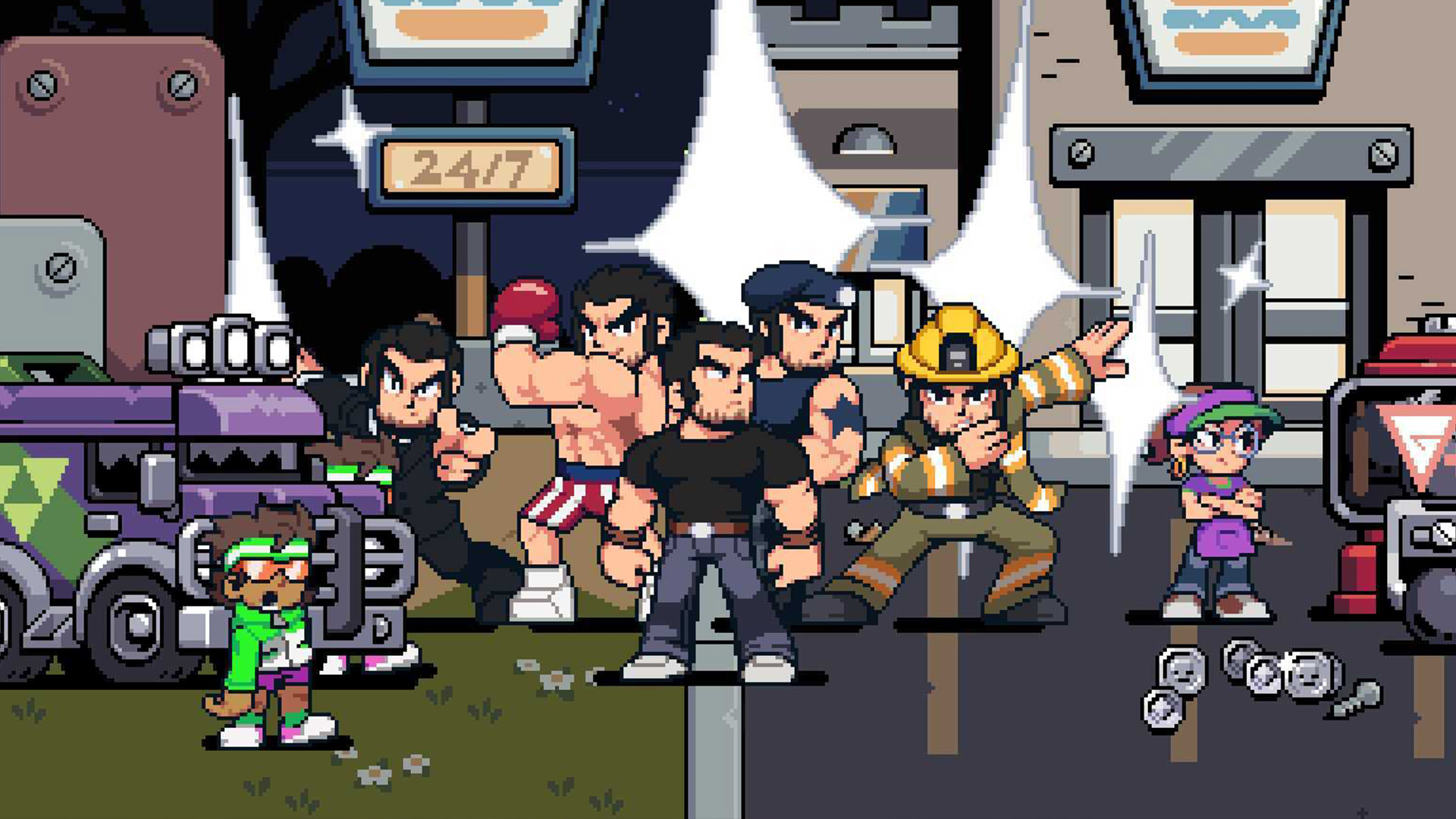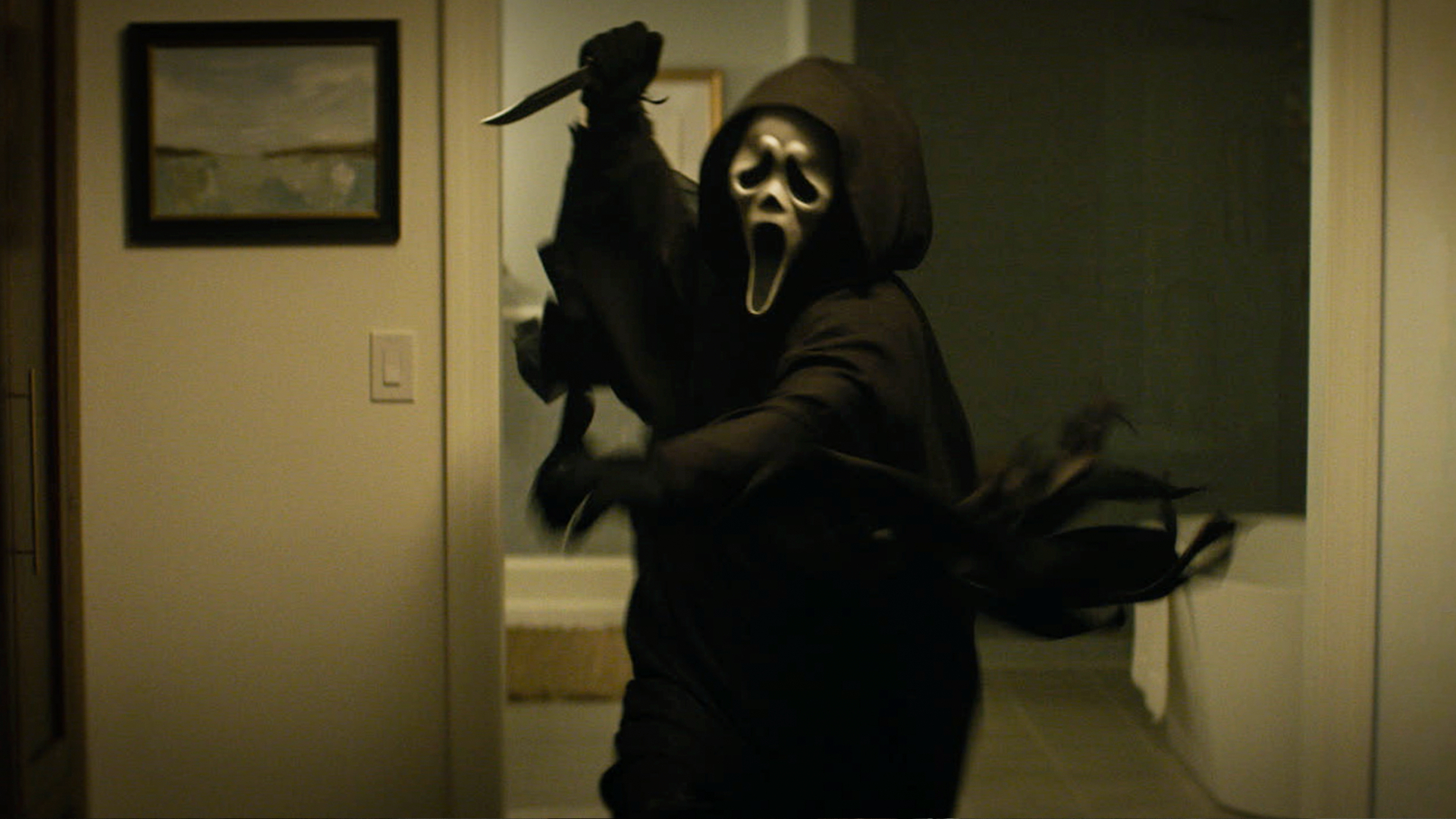Why you can trust GamesRadar+
HOW TO SPRAIN YOUR DRAGON
Of all the Hobbit trilogy, The Battle Of The Five Armies was arguably Peter Jackson's biggest challenge. With most of the standout moments from the book already out of the way (Gollum, the spiders, the barrel chase, the natter with Smaug), this was a film based around a skirmish many consider a footnote that takes place after the real story is done. How could Jackson possibly base an entire epic movie on such narrow foundations? Surely this would be where the folly of splitting a brief source novel into three movies would be well and truly exposed?
We needn't have worried. While it's not up there with his Tolkien cycle's best, this is a fitting end (or should that be middle?) to Jackson's saga, one that manages to mix blockbuster spectacle with some intimate, tender character moments. That it works at all is down to two key filmmaking decisions: making sure this is the shortest jaunt to Middle-earth yet (there's no room for unnecessary filler here), and holding back the end of Smaug's story to open this movie, even though dramatic logic tells you it should have been wrapped up last time out.
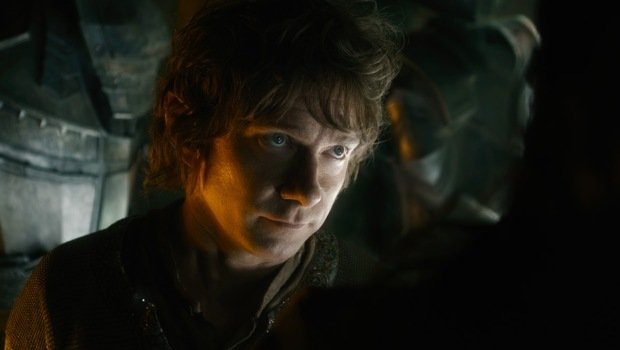
It's a choice that proves bang on the money, because while it left us with an unsatisfying cliffhanger for The Desolation Of Smaug, the dragon's assault on Lake Town opens this third film with the killer hook it needs. Without wasting time on any kind of flashback or prologue, we're launched straight into the silver-tongued lizard's fiery bombing raid, as the soon-to-be-former resident of the Lonely Mountain lays waste to the town below. It's a wonderful sequence (albeit one that's over too quickly) that instantly seizes your attention, even though it feels like it's a leftover from a different movie – it's like opening The Empire Strikes Back with Luke Skywalker blowing up the Death Star.
And there's the conundrum. Had the dragon not been in The Battle Of Five Armies, the movie wouldn't have hung together. Once Smaug departs (and surely that can't still be a spoiler after 80-odd years), we're launched into nearly an hour of posturing, arguing and reflecting as various armies get ready for war. (We know they're getting ready for war because they say so. Many times.) It's an effective crescendo to battle, but in a film that's effectively one long final act, it would have made for a pretty mediocre opening.
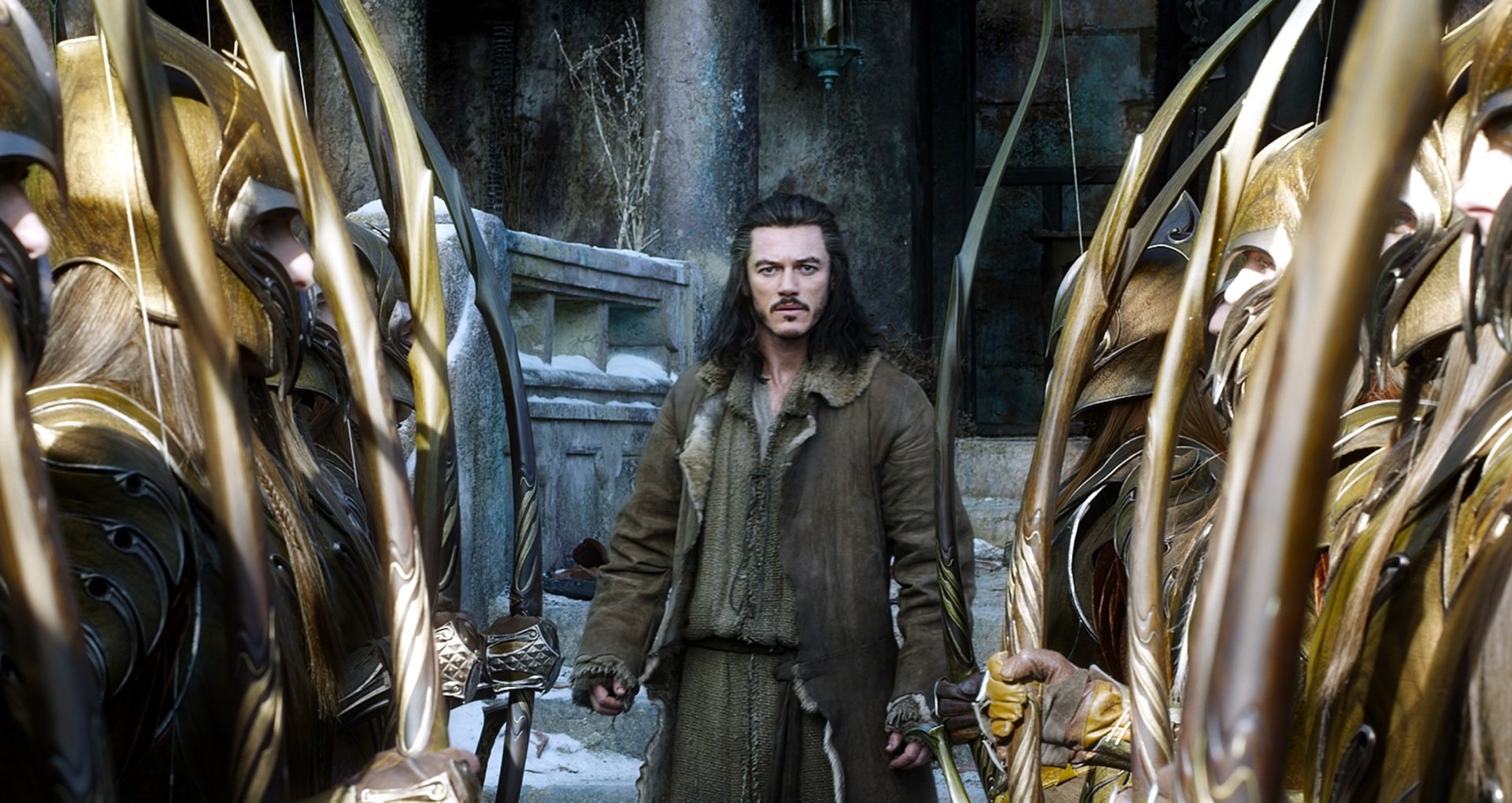
When things do finally kick off, the fight proves worth the wait. With several factions camped outside the newly freed Dwarf stronghold of Erebor, the scale is pitched somewhere between the tense siege of Helm's Deep and the sprawling scrap of Pelennor Fields. Ok, there's a little bit of Anchorman 2 to the way more and more groups join the battle – you almost expect Wes Mantooth and his Channel 9 Evening News team to trash talk an Orc – but it's marshalled effortlessly by Jackson, who pulls all the disparate elements together in a way few directors could match.
The battle is endlessly inventive, with the Orcs, Elves, Men, Dwarves and Eagles displaying numerous ingenious tactics, and riding a big enough variety of steeds to sustain pretty much every verse of Old McDonald. Also, Jackson knows when to punctuate the carnage with a gag or a tender moment, making this the antithesis of Michael Bay's humourless, confusing Transformers: Age Of Extinction.
Yet despite the warmongering title, focusing on the action would be doing The Battle Of The Five Armies a disservice. Even at its most talky, it's compelling stuff, reaping the rewards of characters built-up over two-and-a-bit movies (sometimes more), all of them flawed and with a convincing agenda. With Martin Freeman's ever-excellent Bilbo more of a bit-part player this time out, the stage is set for others to stand out: Luke Evans, as Bard, becomes a reluctant leader of men, whose single-minded desire to protect his kids makes him one of the most human characters ever to grace Middle-earth, while Kili (Aidan Turner) and Tauriel's (Evangeline Lilly) romance is undeniably touching. However, it's Thorin's movie, as Richard Armitage takes his Dwarf king character to the edge of madness. With the “Dragon Sickness” that plagued his grandfather taking hold, Thorin is a danger to everyone under his rule, yet Armitage never allows him to become a monster, allowing glimpses of the good man he was before to shine through.
Weekly digests, tales from the communities you love, and more
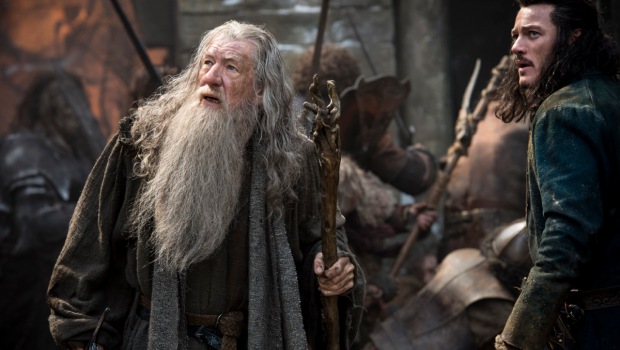
While you're always conscious that bridges with The Lord Of The Rings are being built, this trilogy closer is way less preoccupied with being a prequel than it could have been. Yes, come the end Bilbo has his Mithril shirt and all the key players are where they need to be when Sauron goes on the prowl for his famous trinket, but only one moment – a random mention of one of Rings' leading lights – feels shamelessly crowbarred in.
As for the ending, Jackson is much more restrained than he was on Return Of The King, wrapping things up with a suitably low-key return to the Shire that effectively brings the saga full circle. As a farewell to Middle-earth, it's pitched perfectly – bad things are happening in Mordor, but we don't have to worry about that. Not yet, anyway...
VERDICT: The debate will continue to rage over whether The Hobbit needed to be split into three movies, but Peter Jackson has completed his six-film Middle-earth cycle without dropping the ball: one of the great cinematic achievements.
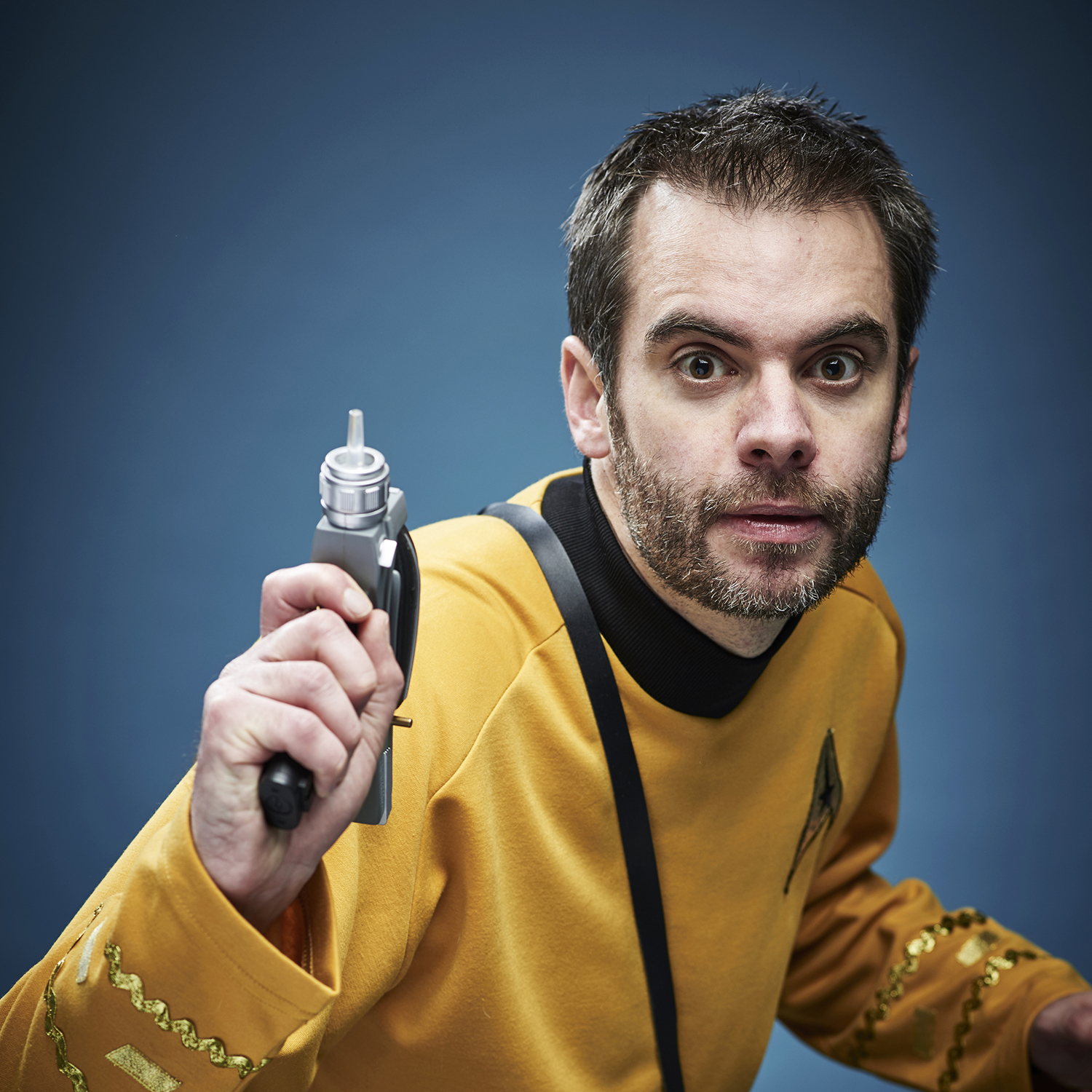
Richard is a freelancer journalist and editor, and was once a physicist. Rich is the former editor of SFX Magazine, but has since gone freelance, writing for websites and publications including GamesRadar+, SFX, Total Film, and more. He also co-hosts the podcast, Robby the Robot's Waiting, which is focused on sci-fi and fantasy.
